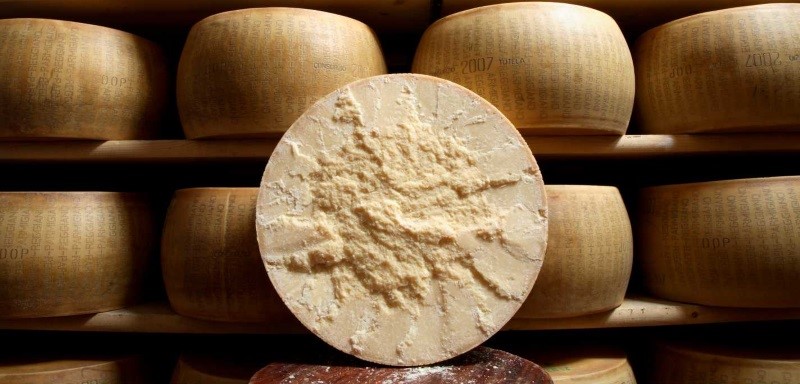Parmigiano Reggiano: a lactose free cheese

Perhaps not everyone knows that Parmigiano Reggiano does not contain lactose, so it is lactofree cheese and it is also suitable for consumers who are lactose intolerant.
Why is Parmigiano Reggiano lactose free?
Parmigiano Reggiano does not contain lactose or galactose. Its absence is a natural consequence of the typical process used to obtain Parmigiano Reggiano, and it is the result of the long ageing process.
In the hours immediately following the cheese making process there is a rapid development of lactobacilli, which through fermentation eliminate in about 6-8 hours all the lactose contained in the curd. Even the galactose, a simple sugar that derives from lactose, is rapidly metabolised in around 24-48 hours and entirely disappears.
On 16/06/2016, the Ministry of Health issued a circular (0024708) concerning the absence or limited presence of lactose in cheese and in dairy products that do not contain this sugar, or contain a limited amount of it, owing to the usual production process. As a result of their own assessment, the Ministry of Health has declared that it is legitimate to use, in labelling the aforementioned types of dairy products, information referring to the absence of lactose when the products in question have a lactose content of less than 0.1g /100g.
Parmigiano Reggiano is therefore a 100% natural product, made without the use of additives and preservatives, made exclusively with milk, salt, and rennet and it is lactofree cheese.
What is lactose?
Lactose is a sugar naturally contained in milk. It is a complex sugar made up of two simple sugars, glucose and galactose. Lactose cannot be absorbed by the small intestine, and therefore cannot be used by our body. The simple sugars – glucose and galactose – on the other hand, are nutritional substances that the human body can absorb and use. This happens thanks to lactase, a natural enzyme that splits the glucose and galactose in the small intestine, thus favouring their digestion.


